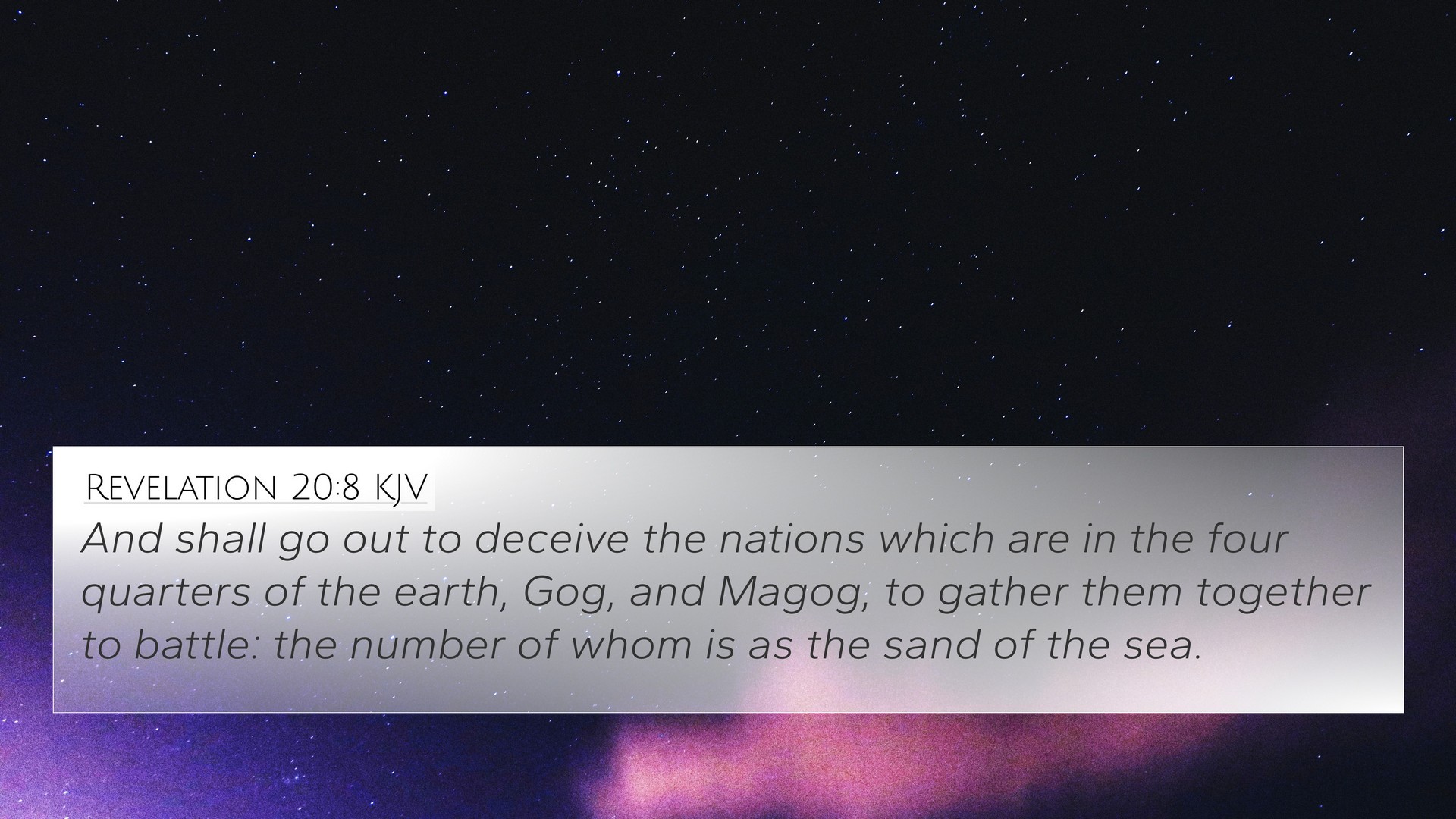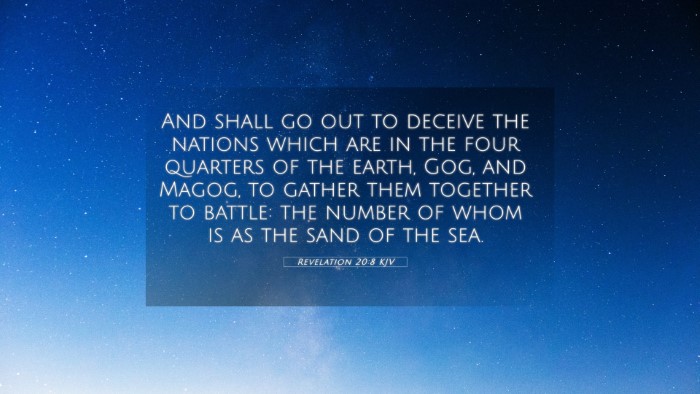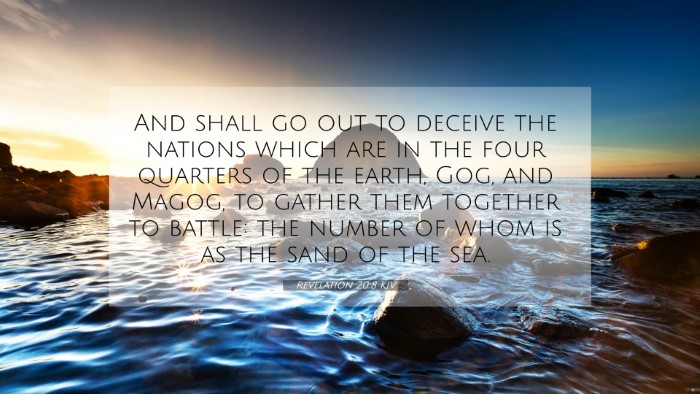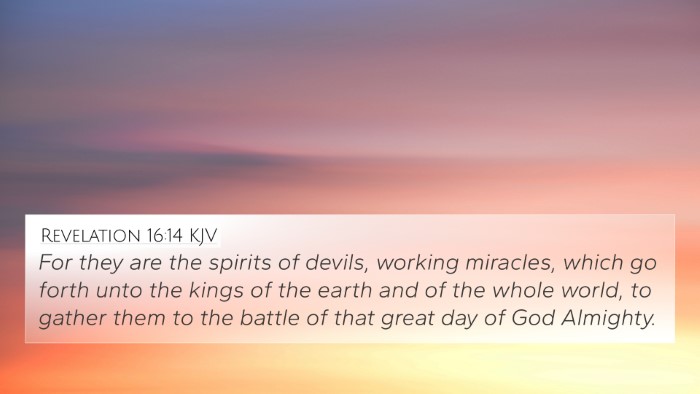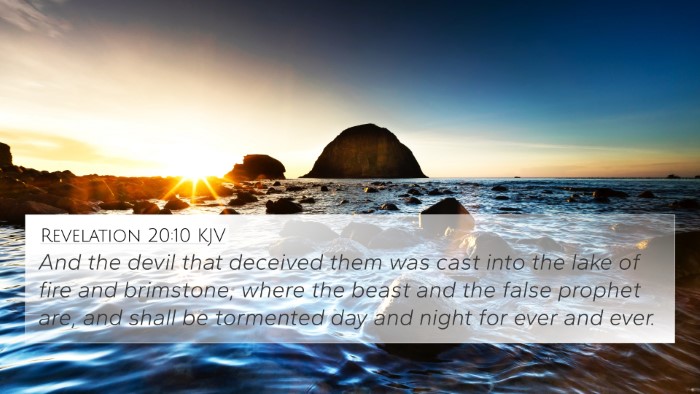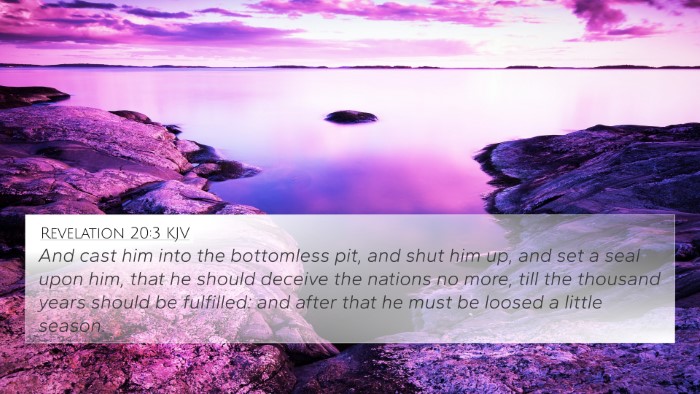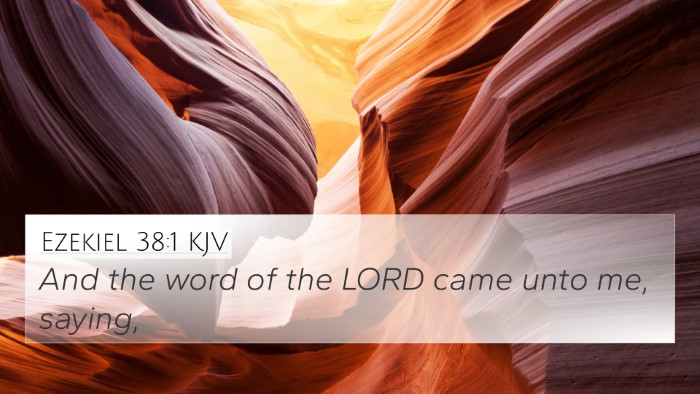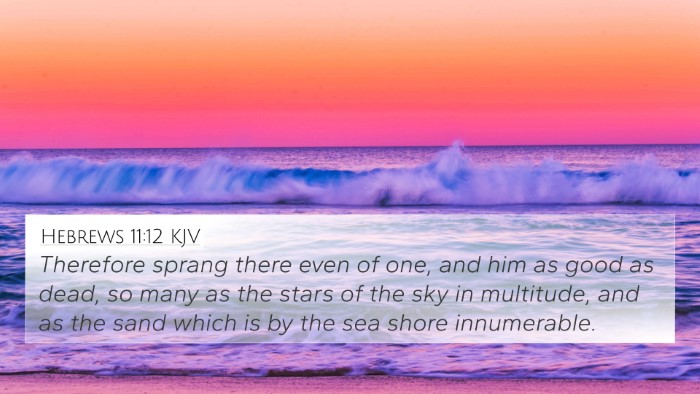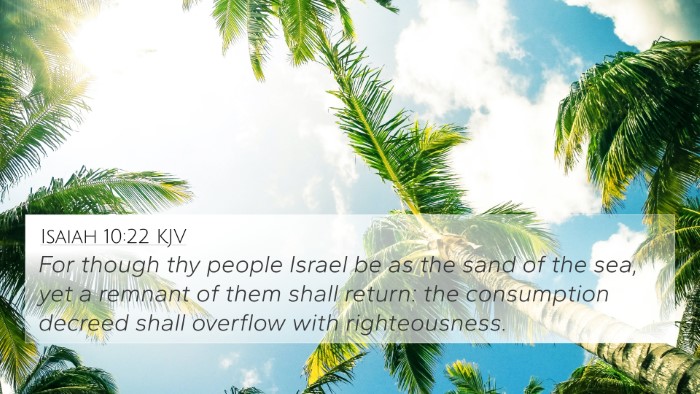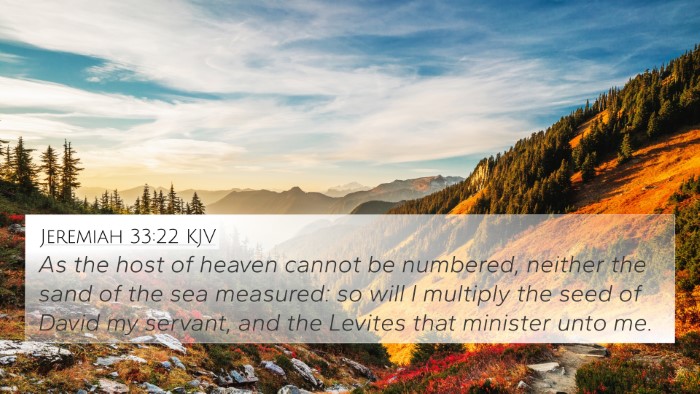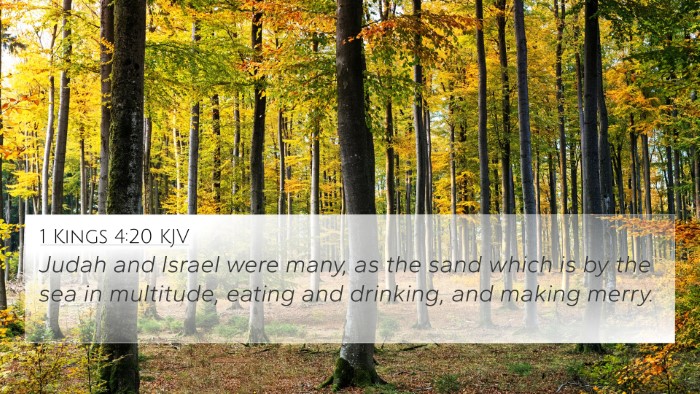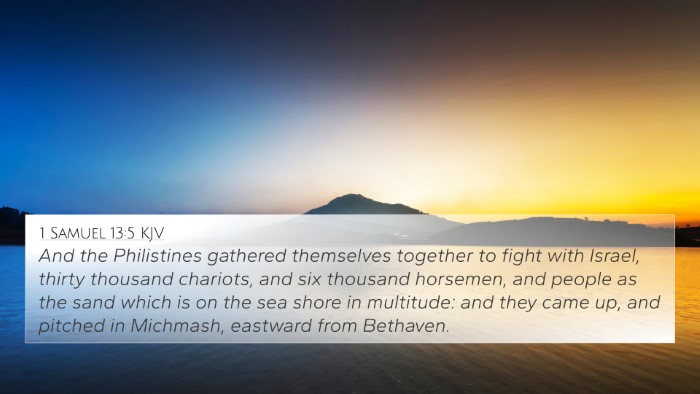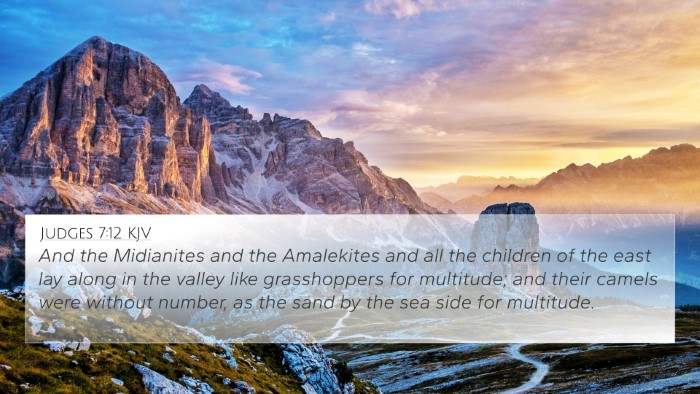Understanding Revelation 20:8
Revelation 20:8 states:
"And shall go out to deceive the nations which are in the four quarters of the earth, Gog and Magog, to gather them together to battle: the number of whom is as the sand of the sea."
Verse Meaning and Interpretation
This verse is positioned at a crucial juncture in the Book of Revelation, where it describes the final rebellion against God. The imagery of Gog and Magog alludes to prophetic enemies representing a collective opposition to God, situated globally as denoted by "the four quarters of the earth."
Insights from Commentaries
-
Matthew Henry:
Henry notes that the names Gog and Magog symbolize powerful adversaries and highlight the ultimate showdown between divine authority and defiant humanity. The reference to the sand of the sea emphasizes the vast multitude that aligns against God's people, illustrating a significant eschatological conflict.
-
Albert Barnes:
Barnes elaborates on the concept that the devil will influence nations to rise against the saints, signifying the grand climax of evil's attempts against God’s plan. He draws parallels with ancient prophecies, showcasing how these names serve as metaphors for rebellion and opposition throughout biblical texts.
-
Adam Clarke:
Clarke focuses on the geographical implications of the nations, signifying the universality of the conflict. He also emphasizes the theological importance, asserting that this final rebellion underscores humanity's enduring sinfulness and the ultimate authority of God in resolving conflict.
Key Themes
-
Deception:
The act of deceiving nations reflects the theme of spiritual delusion prevalent throughout scripture, reminding readers of the need for vigilance and discernment.
-
Ultimate Conflict:
This verse summarizes the climactic battle between good and evil, reinforcing the narrative of victory for God's people.
-
Divine Sovereignty:
God's sovereign control over the events depicted in Revelation highlights His ultimate authority over both nations and individuals.
Cross-References
Revelation 20:8 connects to several important scriptures that deepen our understanding:
- Ezekiel 38-39: The prophecy concerning Gog and Magog outlines the same players in marginal rebellion against God, shedding light on the origins of this imagery.
- Matthew 24:14: The end times and the spread of the Gospel as a precursor to such final battles.
- 1 Peter 5:8: Being sober and vigilant as the devil seeks to deceive, aligning with the theme of spiritual warfare.
- 2 Thessalonians 2:3-4: The man of sin will oppose and exalt himself above all, reflecting similar themes of rebellion.
- Psalm 2:1-5: Nations conspiring against the Lord, providing context and a thematic connection.
- Revelation 16:14: Spirits of demons gathering kings to the battle emphasizes the orchestrated nature of this rebellion.
- Revelation 17:14: The ultimate defeat of the lamb against the gathered forces resonates with 20:8.
Connecting Themes: Cross-Referencing Biblical Texts
Understanding Revelation 20:8 requires an appreciation for the connections between Bible verses. The thematic elements found in this passage resonate throughout both Old and New Testaments, showcasing how the narrative of conflict and divine assurance runs parallel through various scriptures.
Tools for Bible Cross-Referencing
To engage in a deeper study of Revelation 20:8, consider using various tools for Bible cross-referencing:
- Bible Concordance: A helpful resource for locating scriptures that discuss similar themes.
- Bible Cross-Reference Guide: A tool useful for linking passages with comparable messages or narratives.
- Bible Reference Resources: Comprehensive tools that allow readers to dive into cross-referenced themes and ideas.
- Cross-Reference Bible Study: Methods that facilitate understanding how different verses correlate with each other within the biblical framework.
Conclusion
Revelation 20:8 serves as a powerful depiction of the final confrontation between good and evil. Through studying the various commentaries and related biblical texts, one gains insight not only into the specific events described but also the broader implications for God’s ongoing narrative of redemption and judgment. Engaging with the inter-Biblical dialogue among these scriptures enriches one’s understanding and faith.
